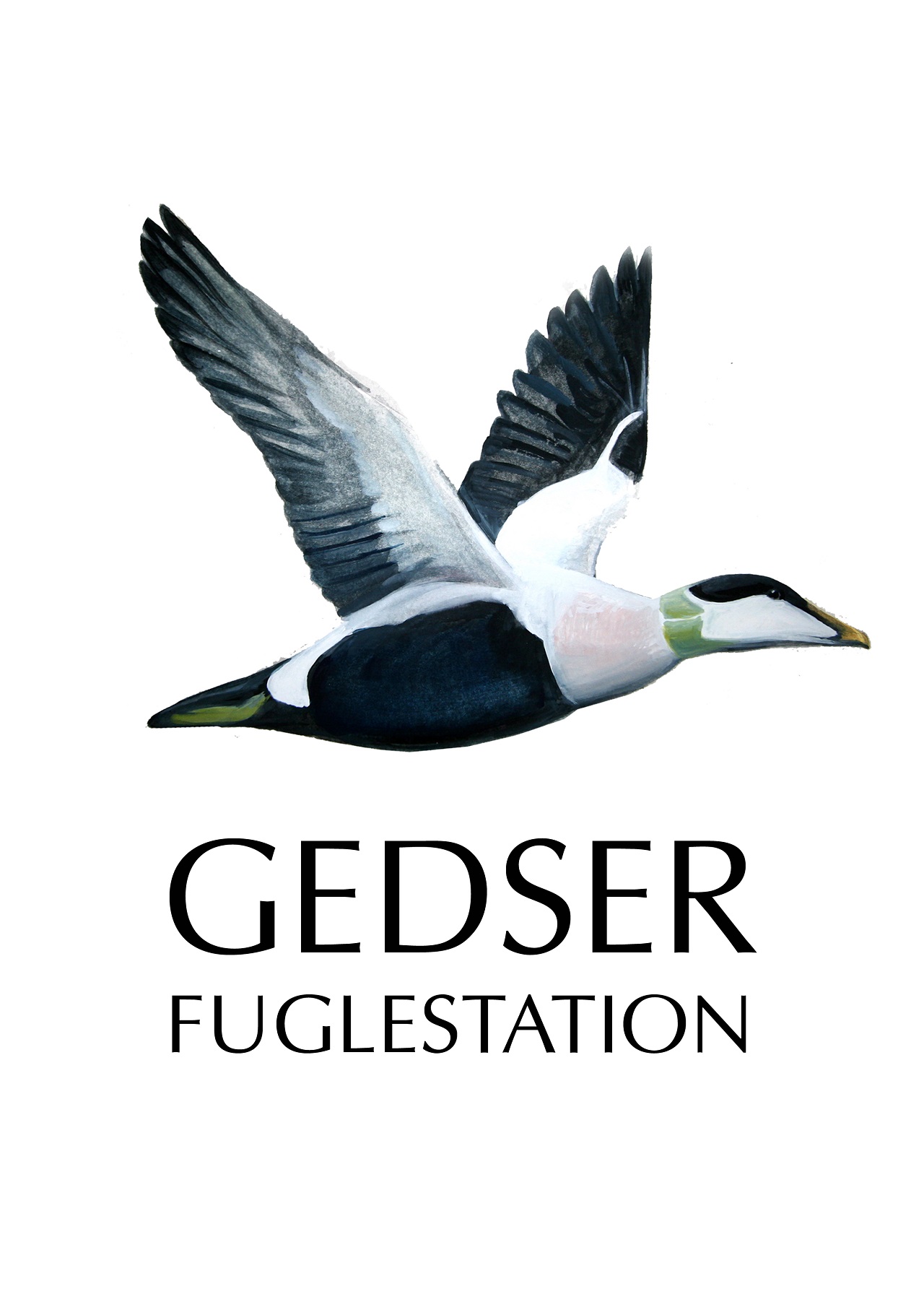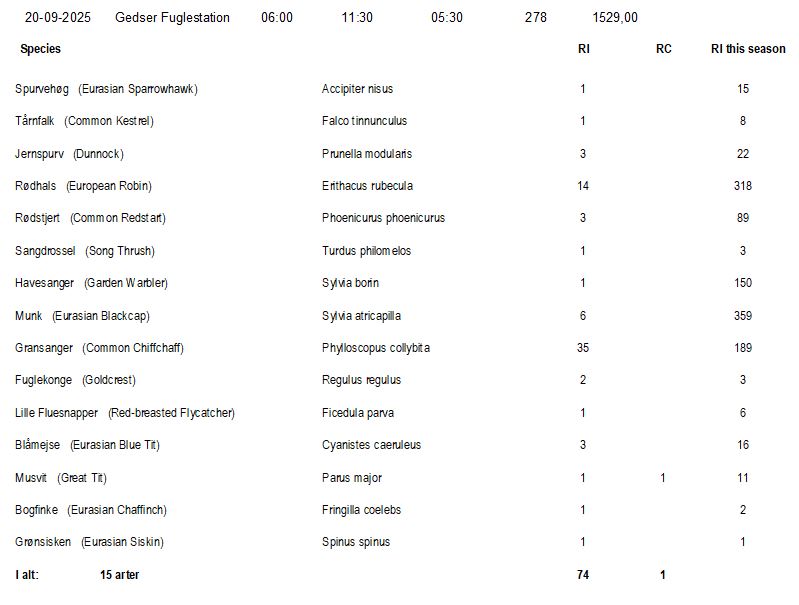Gedser Fuglestation Blog
Her på Gedser Fuglestations blog bringes korte nyheder i dagbogsformat om hændelser på fuglestationen.
Red-breasted Flycatcher most common flycatcher the last two weeks
Ringmærkningen/the Ringing:
Today we were lucky to have a very nice weather, delicate breeze of wind and partial clouds and sun. Already in our second round - which, with the first one, were the busiest – we had the good surprise of another Red-breasted flycatcher in the nets! This species which is relatively rare for this location has been visiting us regularly for the past couple of weeks. It is now the most common species of Flycatchers we have caught these past two weeks! The individual was a 1K bird, like all the other ones we have caught. See picture below.
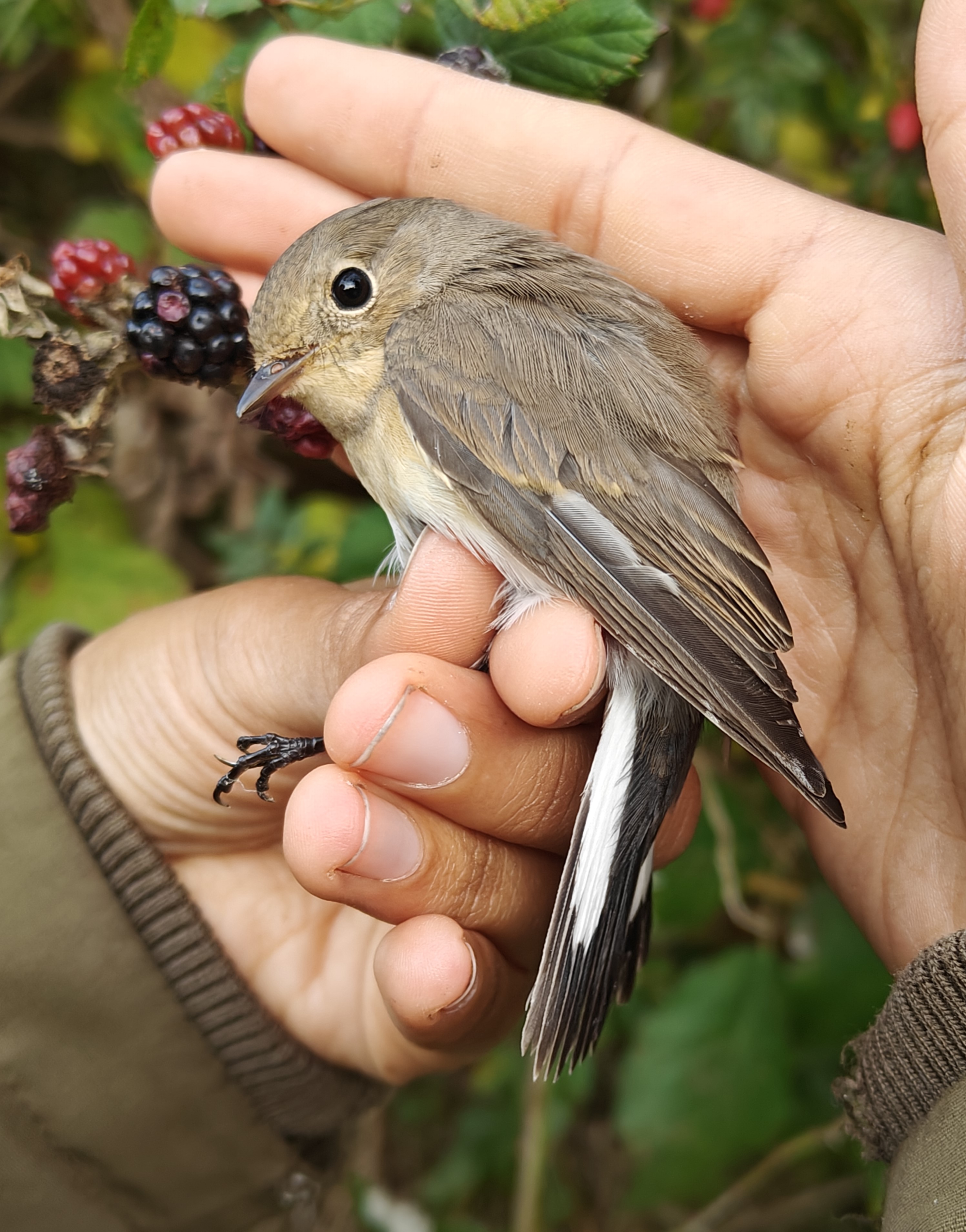
1K Red-breasted flycatcher.
The overall morning brought us 74 new birds and 1 recapture. The most common species caught today was Chiffchaffs (Phylloscopus collybita), with two honourable mentions to a few handsome Redstarts (Phoenicurus phoenicurus), and a beautiful Kestrel (Falco tinnunculus).
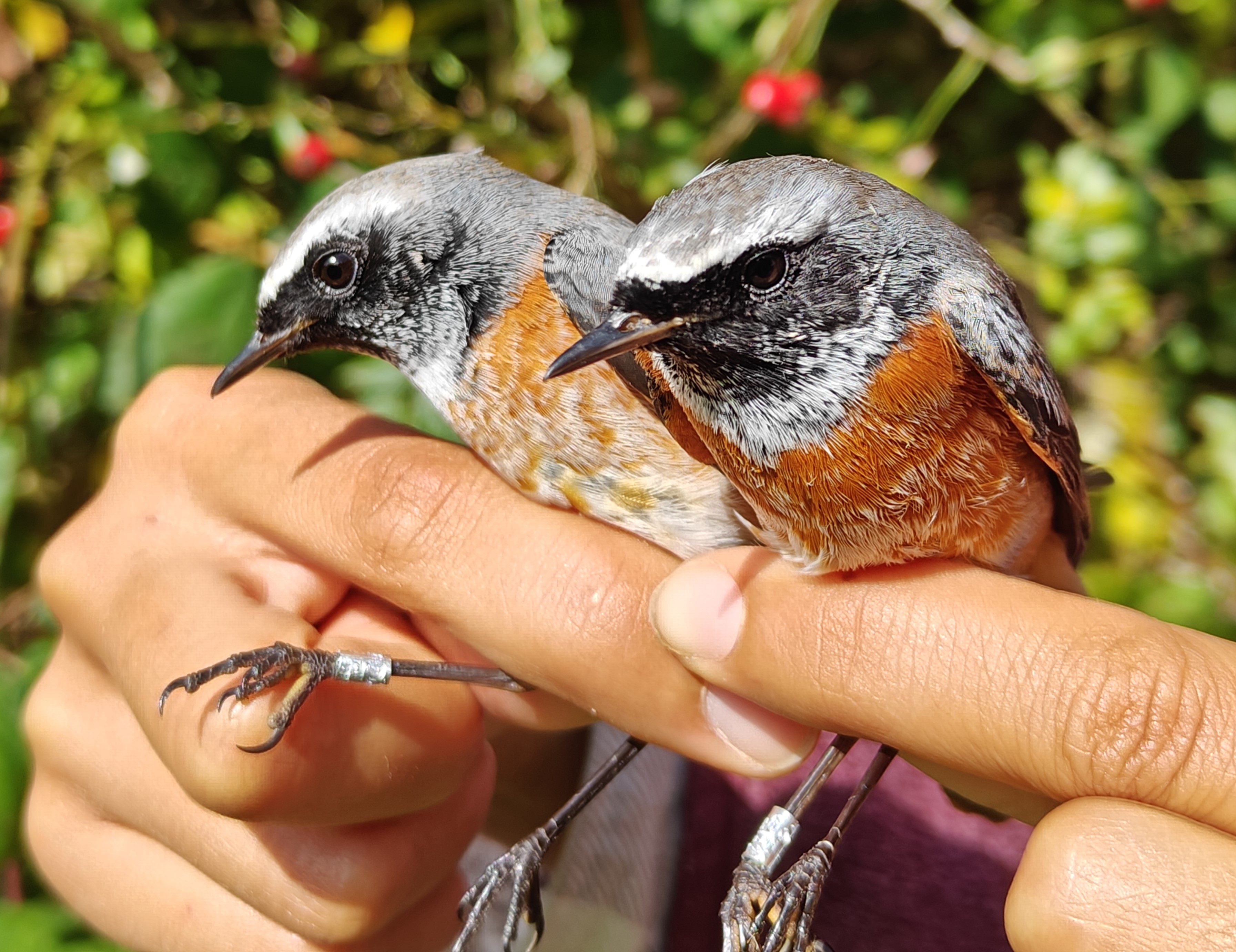
Two adult male Redstarts (2k+).
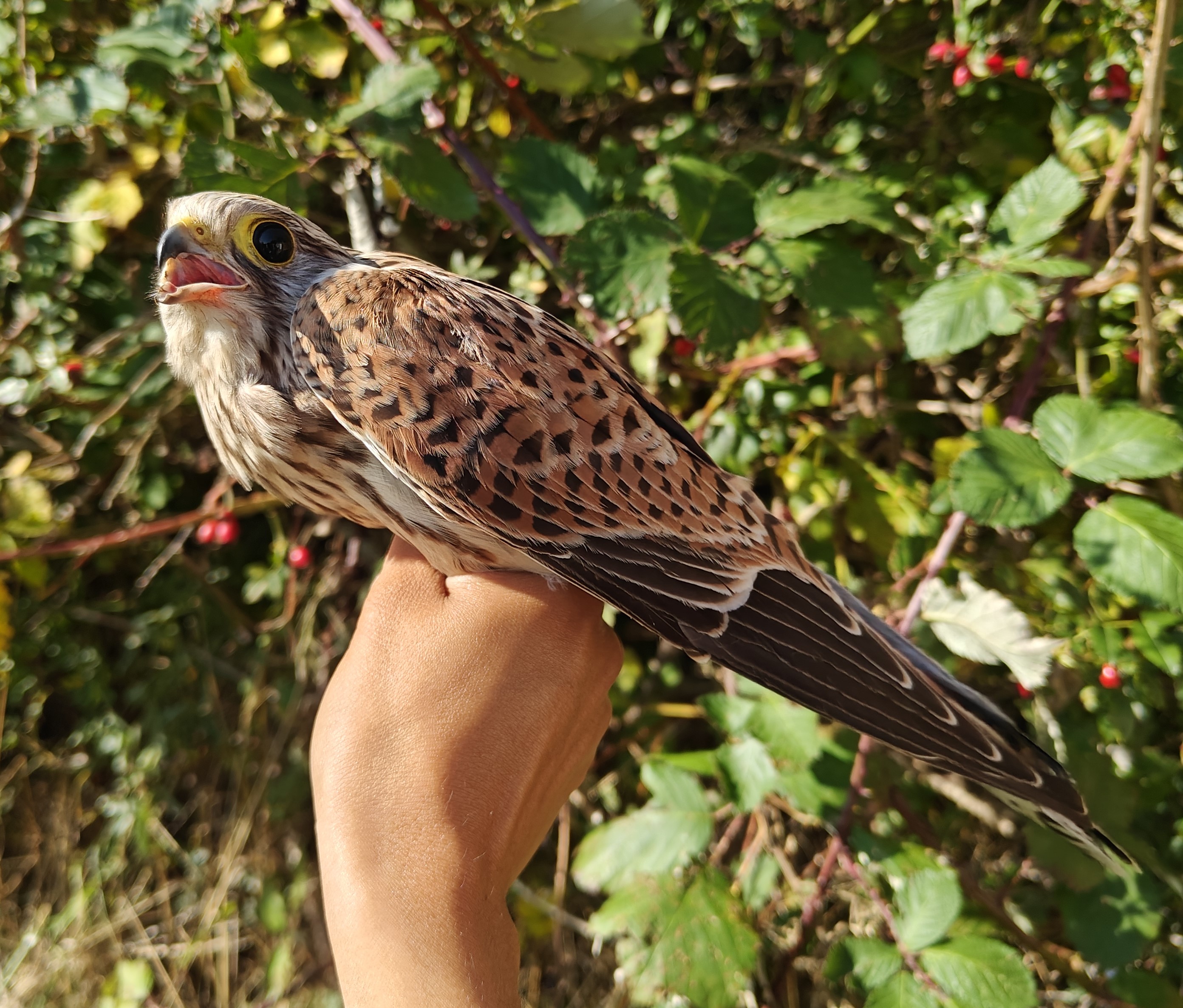
Beautiful 1K Kestrel, caught at the end of the morning with its lunch (it had a mouse when it got caught in the nets and unfortunatly had to forego this treat because of us).
Moths near the station: This night 21 species and two species that we did not catch in the last two weeks. The September Thorn (Ege-Tandmåler) and the Large Wainscot (Stor Sivugle). Together with those two we saw 84 different species near the house. It always amazes me how large the biodiversity (still) is when paying some attention to the moths flying in the night. I will leave tomorrow after the ringing and go back to Djursland (Gjerrild). In my garden I am over 600 species of moths. I hope I could have inspired some people to look to them too.
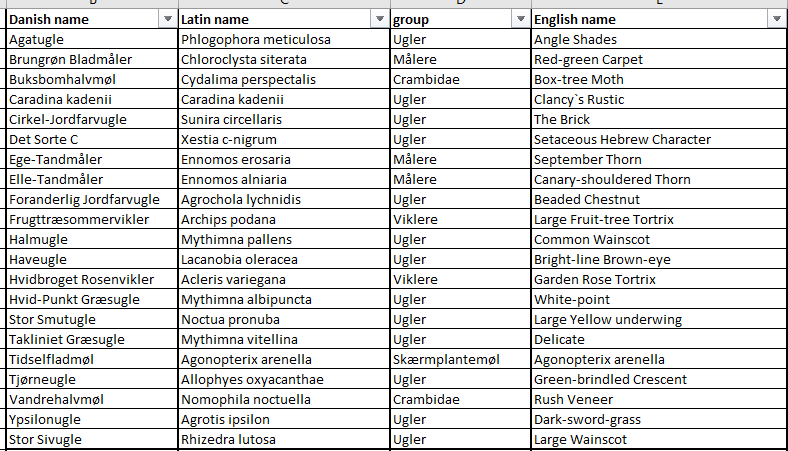
The moth of the day is the Large Wainscot (Stor Sivugle).
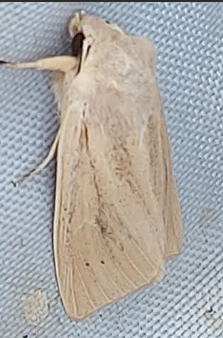
Folk på stationen: Alix Bortolussi, Hanelie Sidhu, Robert Luttik.
